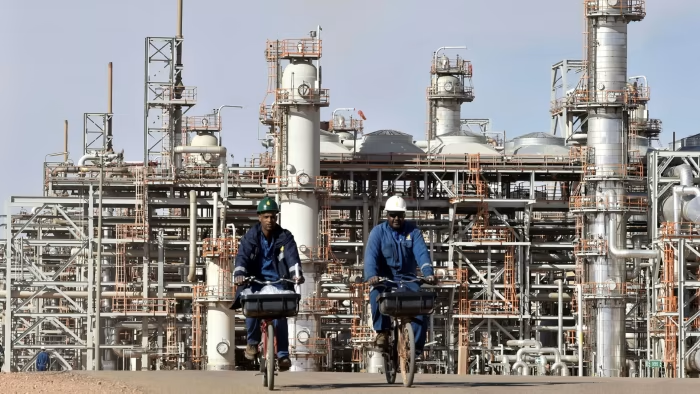
Gas flaring continues to pose a significant environmental and economic challenge for Algeria, highlighting a growing concern for one of North Africa’s largest energy producers.
While neighbouring countries like Libya and Egypt have made strides in curbing flaring, Algeria still burns vast quantities of natural gas annually, translating into billions of dollars in lost revenue.
According to Observalgérie, Algeria flares around 8 billion cubic meters of natural gas each year, representing a direct financial loss of approximately $3.4 billion.
This gas, released into the atmosphere, could otherwise be used to fuel domestic industry, generate electricity, or support petrochemical and fertilizer production.
“The gas flared each year could have been used to stimulate Algeria’s industrial sector, produce energy for the country, and generate employment,” the report notes, underlining the economic implications of continued gas waste.
In contrast, Libya managed to reduce its flaring by 8% in 2024, and Egypt has cut flared volumes by two-thirds since 2015, freeing up additional capacity for export and local industrial use.
These examples demonstrate the potential for Algeria to capture and utilize its gas more effectively, if the right infrastructure and technology are deployed.
Experts argue that Algeria’s persistent flaring is largely due to insufficient infrastructure, including a lack of compressor stations, processing units, and gas capture facilities.
Without substantial investment in these areas, the country risks continuing economic losses while missing opportunities to expand its domestic industrial base.
Investing in gas processing and capture technologies would not only limit environmental damage but also transform Algeria’s energy sector into a catalyst for industrialization.
As neighbouring nations show, reducing flaring is not only feasible but can provide long-term economic and environmental benefits.
For Algeria, the challenge is clear: harness its abundant hydrocarbon resources efficiently or continue to see billions lost to the flames, while its industrial potential remains largely untapped. The coming years will be decisive in determining whether the country can convert its gas reserves into sustainable growth and regional energy leadership.



